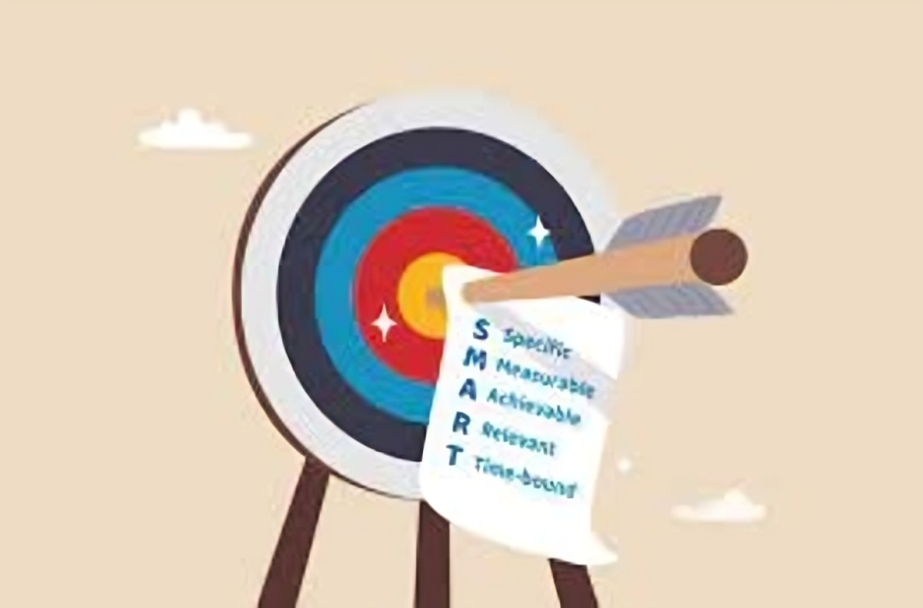Developing SMART goals is a crucial approach for attaining success in different facets of life. These objectives, characterized by their Specific, Measurable, Achievable, Relevant, and Time-bound nature, offer a well-defined path to achieve success. Now, let’s investigate the significance of SMART goals and examine ten compelling instances spanning personal, business, work, and leadership domains. Applying the principles of the best free budget is integral to the success of these SMART goals.
What Is a SMART Goal?
A SMART goal is an objective that is:
- Specific: Clearly defined with no ambiguity.
- Measurable: Quantifiable, allowing progress tracking.
- Achievable: Within reach and realistic.
- Relevant: Aligned with broader goals and objectives.
- Time-bound: Specifies a clear start and end date for completion.
Why Are SMART Goals Important?
SMART goals offer clarity and focus, reducing confusion and enhancing the likelihood of success. They serve as a roadmap, guiding individuals and teams towards their desired outcomes. Without SMART goals, efforts may lack direction, leading to unproductive outcomes.
10 Effective SMART Goal Examples
Personal SMART Goal Examples
- Fitness Goal:
- Specific: Start daily running to train for a marathon.
- Measurable: Follow a structured training program.
- Achievable: Considering past running experience and health status.
- Relevant: Aims for overall fitness and vitality.
- Time-bound: Participate in a marathon in six months.
- Personal Project:
- Specific: Write a 60,000-word novel.
- Measurable: Finish writing 60,000 words in six months.
- Achievable: Allocate time for consistent writing.
- Relevant: Fulfilling a long-term dream of becoming a writer.
- Time-bound: Start writing immediately, aiming for completion in six months.
- Relationship Improvement:
- Specific: Enhance relationships with specific individuals.
- Measurable: Regularly communicate with them.
- Achievable: Based on existing communication frequency.
- Relevant: Strengthening social connections and support.
- Time-bound: Commit to the plan for three months, then reassess.
Business SMART Goal Examples
- Business Startup:
- Specific: Launch a dropshipping venture.
- Measurable: Allocate daily time and aim for first sale within two weeks.
- Achievable: Leveraging available resources and market platforms.
- Relevant: Aspires for entrepreneurship and flexibility.
- Time-bound: Start the venture on a specified date and target initial sale within two weeks.
- Marketing Strategy:
- Specific: Learn and implement Facebook Ads.
- Measurable: Double sales within three months.
- Achievable: With existing business success and suitable training.
- Relevant: Aims for business growth and increased revenue.
- Time-bound: Begin Facebook Ads training immediately and evaluate progress in three months.
- Business Expansion:
- Specific: Hire a virtual assistant (VA) and add new products.
- Measurable: Employ a VA and expand product range.
- Achievable: Based on prior outsourcing experience and market analysis.
- Relevant: Focuses on business scalability and efficiency.
- Time-bound: Employ a VA within two weeks and add new products within one month.
SMART Goal Examples for Work
- Job Search:
- Specific: Secure a remote SEO specialist position.
- Measurable: Submit applications to specific roles.
- Achievable: With relevant experience and job market opportunities.
- Relevant: Aligns with career aspirations and lifestyle preferences.
- Time-bound: Apply to targeted positions within two months.
- Career Advancement:
- Specific: Attain promotion to senior SEO specialist.
- Measurable: Complete required training and additional projects.
- Achievable: Building on existing expertise and company opportunities.
- Relevant: Pursues professional growth and development.
- Time-bound: Finish training and projects within defined timelines.
- Leadership SMART Goal Examples
- Team Performance Enhancement:
- Specific: Optimize lead qualification to improve sales.
- Measurable: Increase team sales by 5%.
- Achievable: Addressing identified sales barriers.
- Relevant: Contributes to organizational growth objectives.
- Time-bound: Implement changes and assess results within three months.
- Enhanced Team Communication:
- Specific: Improve communication efficiency to save time.
- Measurable: Reduce daily email time by 50%.
- Achievable: Implementing a team messaging solution.
- Relevant: Enhances team productivity and focus.
- Time-bound: Implement messaging solution within two weeks and achieve desired reduction in email time within one month.
Summary: How to Write a SMART Goal
Follow these steps to create effective SMART goals:
- Specific: Define the objective clearly.
- Measurable: Determine how success will be measured.
- Achievable: Ensure that the goal is feasible and achievable within the given constraints.
- Relevant: Align the goal with broader aspirations.
- Time-bound: Set a deadline and establish a timeline for completion.
Now it’s your turn to set SMART goals that propel you towards your dreams and aspirations. Feel free to share your goals in the comments below!

